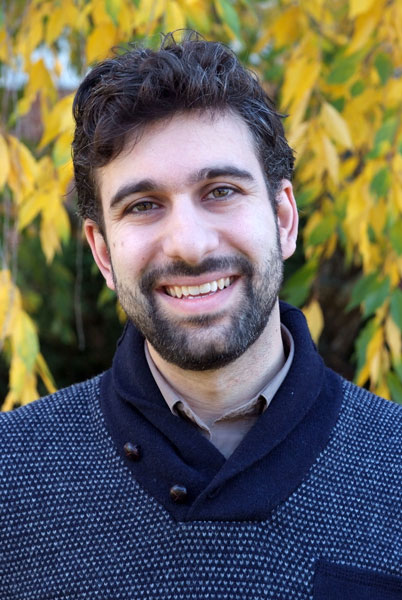Updated: May 9, 2016 at 2:43 p.m.
A scholar specializing in early and medieval Islamic history is joining the history department this fall.
Joel Blecher, an assistant professor of religion and an adjunct law professor at Washington and Lee University, will join GW as an assistant professor of history, according to an announcement on the history department’s website. He said studying Islamic history is especially important today to understand global political and religious tensions.
He added that studying the religion in early periods helps people understand how the world was connected before modern globalization.
“What you would take away as a student from a course about Islamic history, whether or not you are interested in these debates over Islam, would be that you would really learn the way people in the pre-modern world, or the world in world history, have been connected across seas and oceans, religions and cultures,” Blecher said.
Blecher’s addition is one in a series of changes Katrin Schultheiss, the chair of the history department, said she would make when she became chair at the start of this academic year.
This fall, Blecher will teach a class called “The Formation of Islam to 1500,” exploring early Islamic history. He said he also plans to offer a graduate course that will be open to advanced undergraduates, called “Profit and Prophecy in Islamic History” and a course called “Jihad: Love and War in Islamic History” next spring.
In addition to teaching, Blecher said he will continue a digital humanities project on early Islamic history, which he began at Washington and Lee University. Students involved in the project collected, analyzed and visualized biographical data about the earliest transmitters of Islamic law, he said.
A graduate of Swarthmore College and Princeton University, Blecher said he became interested in Islam in 2004 at the end of his undergraduate career, as the religion dominated international conversation.
Blecher said most history scholars did not know much about Hadith – the practice of commenting on Islamic practices and sayings attributed to the prophet Muhammad – and he wanted to contribute to the field of study. He spent several years at the University of Damascus in Syria and returned to Syria almost every summer and winter until 2010 to learn more about Islamic history.
In Syria, Blecher studied Arabic and learned about Islamic traditions like hadith commentary. Blecher said he became interested in the social aspects of the commentary when he watched a scholar deliver a commentary on hadith to an audience and saw how people reacted to it.
This commentary then laid the foundation for Blecher’s first book, “In the Shade of the Hadith: Islam and the Politics of Interpretation across a Millennium,” which is about the history of commentary on hadith and its social significance.
When the political situation became unpredictable in Syria in 2011, Blecher said he shifted his research to Islam in India. He said being in India made him think about Islam differently – as he had previously thought the religion was centered in the Middle East and North Africa.
“It was actually when I was forced to think outside of Islam in the Middle East that really expanded and transformed my whole understanding of Islamic history and the Islamic world,” Blecher said.
Blecher said he plans to work on his second book, “Profit and Prophecy: Islam and the Spice Trade from Venice to India,” at GW. He recently received a fellowship to work on the project from the Council of American Overseas Research Center, supported by the U.S. Department of State’s Bureau of Education and Cultural Affairs.
Schultheiss, the chair of the history department, said while the department is already strong in the field of Middle Eastern and Islamic history, current faculty focus more on the early modern and modern periods.
She said Blecher’s will add insight about early and medieval Islamic history to the department and grow Islamic and Middle Eastern studies.
“He is looking at the reach of Islam in this early period even outside the Middle East, so this really is an effort to make GW’s history department a center for studying the Islamic world – not just in the Middle East but also in the rest of the world,” Schultheiss said.
This post is updated to reflect the following correction:
The Hatchet incorrectly reported that Blecher said not many historians knew about Islamic history. He actually said not many historians know about Hadith. We regret this error.







